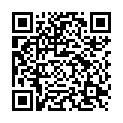|
|
|
| Module code: WIB21-250 |
|
|
2V+2U (4 hours per week) |
|
5 |
| Semester: 2 |
| Mandatory course: yes |
Language of instruction:
German |
Assessment:
Exam
[updated 30.04.2025]
|
Exam recurrence:
The information regarding exam recurrence is found within the exam policy of the study programme (ASPO).
|
WIB21-250 (P450-0303) Industrial Engineering, Bachelor, ASPO 01.10.2021
, semester 2, mandatory course
|
60 class hours (= 45 clock hours) over a 15-week period.
The total student study time is 150 hours (equivalent to 5 ECTS credits).
There are therefore 105 hours available for class preparation and follow-up work and exam preparation.
|
Recommended prerequisites (modules):
WIB21-160
[updated 02.04.2025]
|
Recommended as prerequisite for:
WIB21-350 Technical Mechanics 2
WIB21-450
WIB21-460
[updated 02.04.2025]
|
Module coordinator:
Prof. Dr. Frank Ulrich Rückert |
Lecturer:
Torsten Schmidt
[updated 02.04.2025]
|
Learning outcomes:
After successfully completing this module, students will:
be able to determine forces and force effects and represent them graphically and mathematically
be able to mathematically, derive equilibrium conditions from them, and determine bearing forces and moments
be able to determine the internal forces and moments acting on a body when external forces exist
be able to explain the physical principles of friction and determine the conditions under which a system with frictional forces is stable
[updated 30.04.2025]
|
Module content:
1. Force concept, force and moment effects on the basis of Newton´s axioms
2. Graphic and mathematical determination of resulting forces and moments
3. Applications with central and flat force systems, e.g. bearing forces
4. Normal forces, shear forces, internal moment effect
5. Beams, two-part systems and trusses
6. Friction
7. Centroid
[updated 30.04.2025]
|
Teaching methods/Media:
Lecture with integrated exercises
[updated 30.04.2025]
|
Recommended or required reading:
Holzmann, G./ Meyer H./ Schumpich G.: Technische Mechanik, Statik; 12. Auflage, Vieweg+Teubner Verlag, 2009
Böge, A.: Technische Mechanik Statik-Dynamik-Fluidmechanik-Festigkeitslehre; 28. Auflage, Vieweg+Teubner-Verlag, 2009
Gross, D./ Hauger, W./ Schröder, J./ Wall, W.: Technische Mechanik 1 - Statik; 11. Auflage, Springer Verlag, 2011
Böge, A./ Schlemmer, W.: Aufgabensammlung zur Mechanik und Festigkeitslehre, 17. Auflage, Vieweg Verlag, 2003
[updated 30.04.2025]
|

